Nipuni Ginige
Max-Min Fairness for Stacked Intelligent Metasurface-Assisted Multi-User MISO Systems
Apr 20, 2025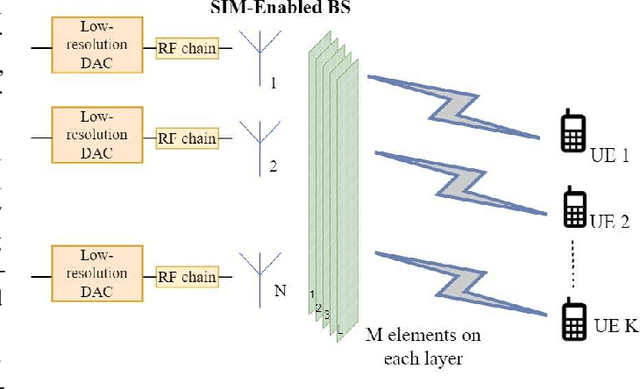
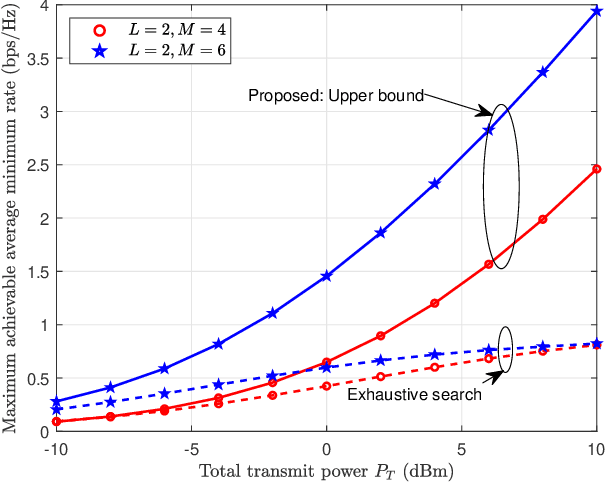
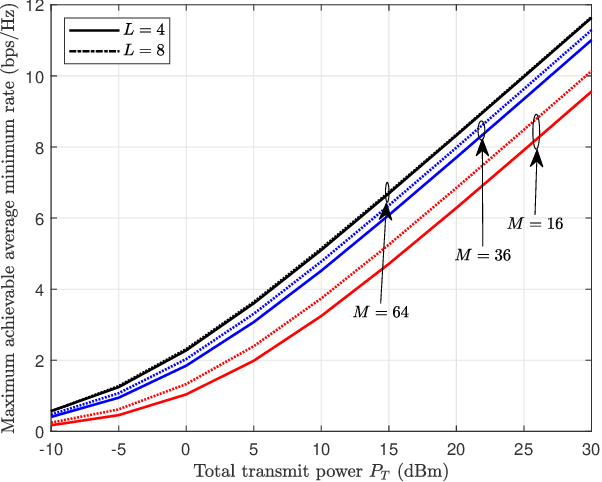
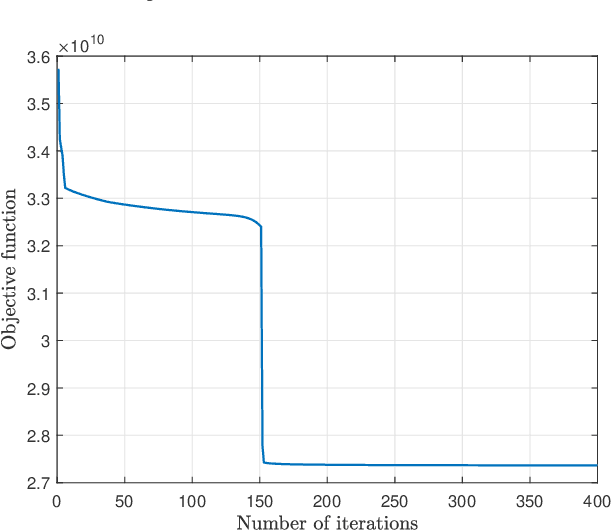
Abstract:Stacked intelligent metasurface (SIM) is an emerging technology that uses multiple reconfigurable surface layers to enable flexible wave-based beamforming. In this paper, we focus on an \ac{SIM}-assisted multi-user multiple-input single-output system, where it is essential to ensure that all users receive a fair and reliable service level. To this end, we develop two max-min fairness algorithms based on instantaneous channel state information (CSI) and statistical CSI. For the instantaneous CSI case, we propose an alternating optimization algorithm that jointly optimizes power allocation using geometric programming and wave-based beamforming coefficients using the gradient descent-ascent method. For the statistical CSI case, since deriving an exact expression for the average minimum achievable rate is analytically intractable, we derive a tight upper bound and thereby formulate a stochastic optimization problem. This problem is then solved, capitalizing on an alternating approach combining geometric programming and gradient descent algorithms, to obtain the optimal policies. Our numerical results show significant improvements in the minimum achievable rate compared to the benchmark schemes. In particular, for the instantaneous CSI scenario, the individual impact of the optimal wave-based beamforming is significantly higher than that of the power allocation strategy. Moreover, the proposed upper bound is shown to be tight in the low signal-to-noise ratio regime under the statistical CSI.
A CNN-based End-to-End Learning for RIS-assisted Communication System
Mar 18, 2025Abstract:Reconfigurable intelligent surface (RIS) is an emerging technology that is used to improve the system performance in beyond 5G systems. In this letter, we propose a novel convolutional neural network (CNN)-based autoencoder to jointly optimize the transmitter, the receiver, and the RIS of a RIS-assisted communication system. The proposed system jointly optimizes the sub-tasks of the transmitter, the receiver, and the RIS such as encoding/decoding, channel estimation, phase optimization, and modulation/demodulation. Numerically we have shown that the bit error rate (BER) performance of the CNN-based autoencoder system is better than the theoretical BER performance of the RIS-assisted communication systems.
Efficient Channel Prediction for Beyond Diagonal RIS-Assisted MIMO Systems with Channel Aging
Nov 21, 2024



Abstract:Novel reconfigurable intelligent surface (RIS) architectures, known as beyond diagonal RISs (BD-RISs), have been proposed to enhance reflection efficiency and expand RIS capabilities. However, their passive nature, non-diagonal reflection matrix, and the large number of coupled reflecting elements complicate the channel state information (CSI) estimation process. The challenge further escalates in scenarios with fast-varying channels. In this paper, we address this challenge by proposing novel joint channel estimation and prediction strategies with low overhead and high accuracy for two different RIS architectures in a BD-RIS-assisted multiple-input multiple-output system under correlated fast-fading environments with channel aging. The channel estimation procedure utilizes the Tucker2 decomposition with bilinear alternative least squares, which is exploited to decompose the cascade channels of the BD-RIS-assisted system into effective channels of reduced dimension. The channel prediction framework is based on a convolutional neural network combined with an autoregressive predictor. The estimated/predicted CSI is then utilized to optimize the RIS phase shifts aiming at the maximization of the downlink sum rate. Insightful simulation results demonstrate that our proposed approach is robust to channel aging, and exhibits a high estimation accuracy. Moreover, our scheme can deliver a high average downlink sum rate, outperforming other state-of-the-art channel estimation methods. The results also reveal a remarkable reduction in pilot overhead of up to 98\% compared to baseline schemes, all imposing low computational complexity.
Untrained DNN for Channel Estimation of RIS-Assisted Multi-User OFDM System with Hardware Impairments
Jul 13, 2021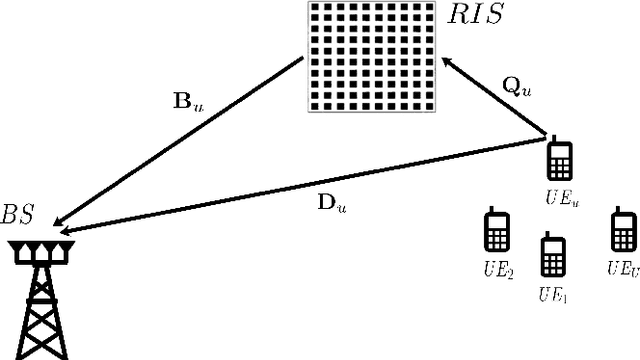
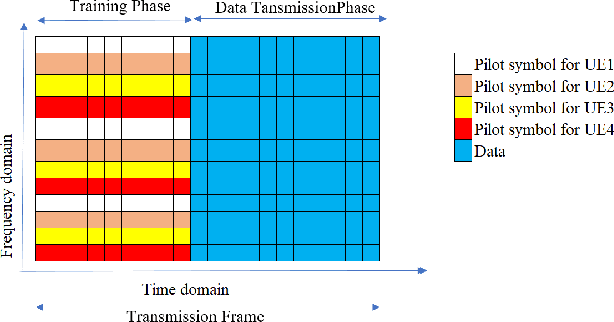

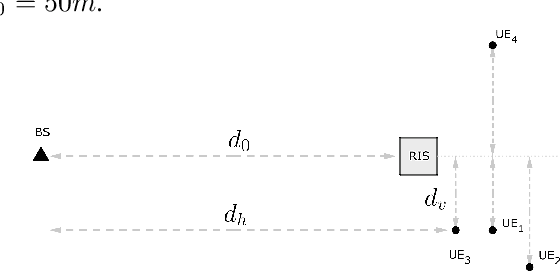
Abstract:Reconfigurable intelligent surface (RIS) is an emerging technology for improving performance in fifth-generation (5G) and beyond networks. Practically channel estimation of RIS-assisted systems is challenging due to the passive nature of the RIS. The purpose of this paper is to introduce a deep learning-based, low complexity channel estimator for the RIS-assisted multi-user single-input-multiple-output (SIMO) orthogonal frequency division multiplexing (OFDM) system with hardware impairments. We propose an untrained deep neural network (DNN) based on the deep image prior (DIP) network to denoise the effective channel of the system obtained from the conventional pilot-based least-square (LS) estimation and acquire a more accurate estimation. We have shown that our proposed method has high performance in terms of accuracy and low complexity compared to conventional methods. Further, we have shown that the proposed estimator is robust to interference caused by the hardware impairments at the transceiver and RIS.
 Add to Chrome
Add to Chrome Add to Firefox
Add to Firefox Add to Edge
Add to Edge